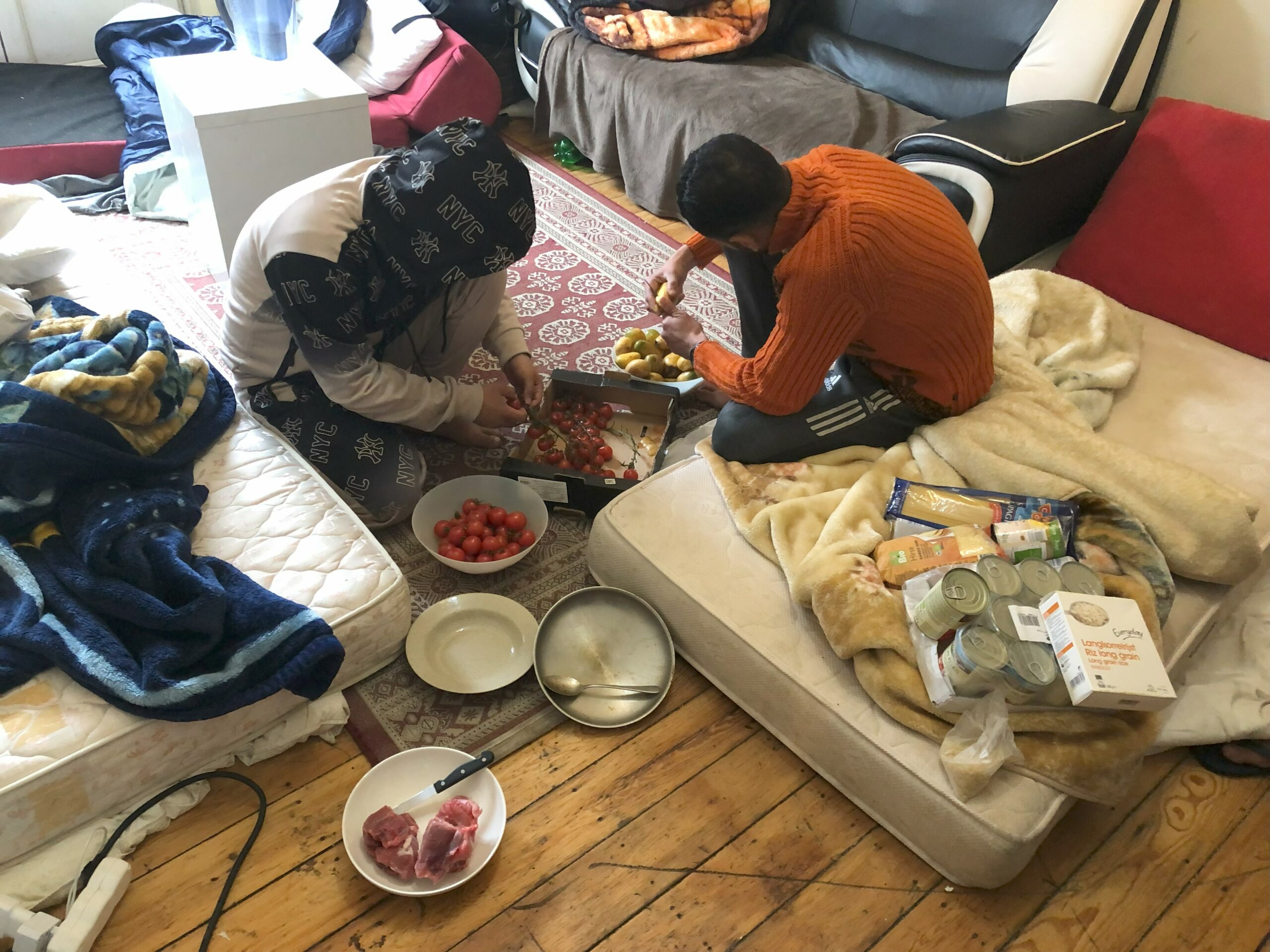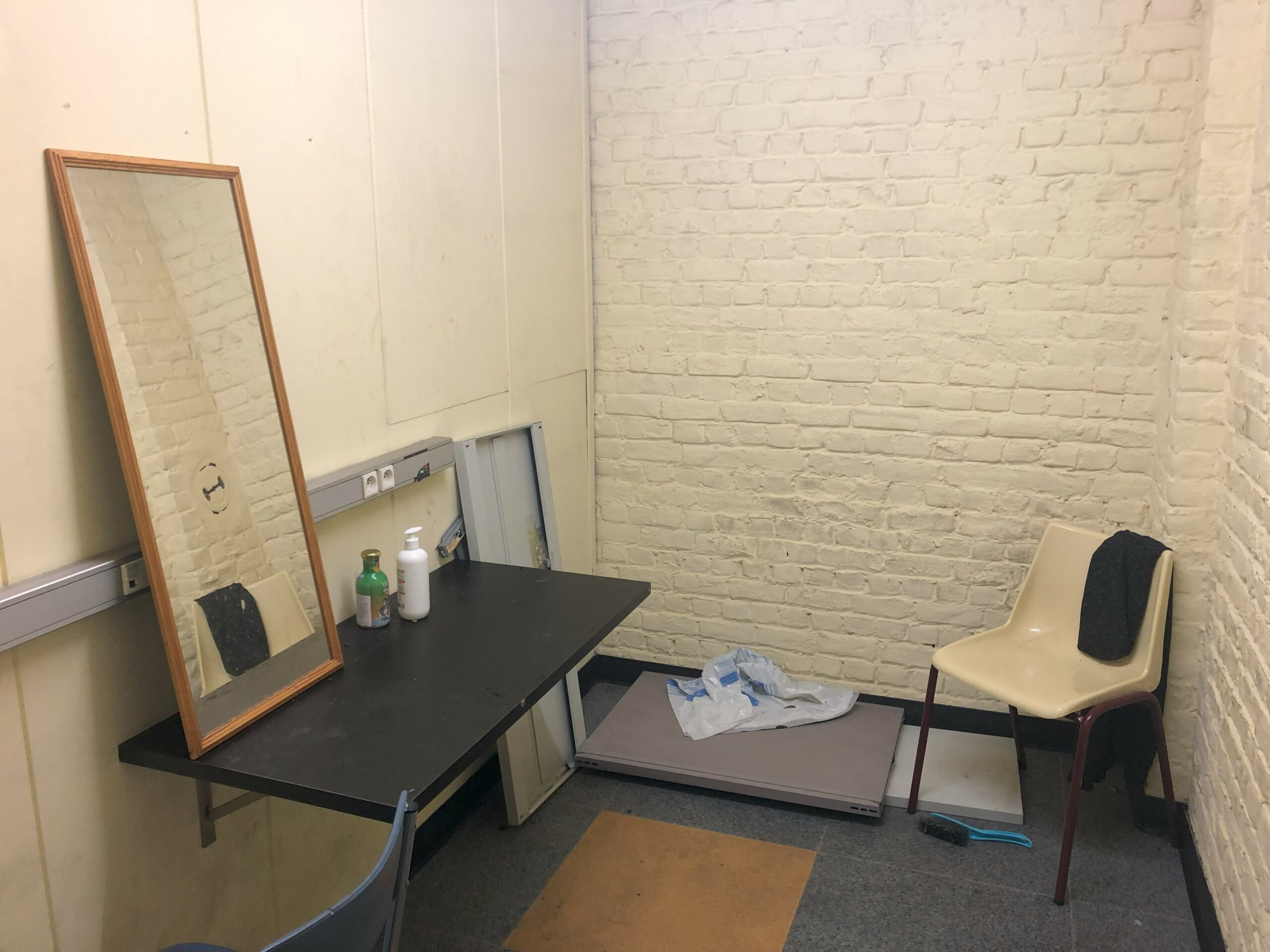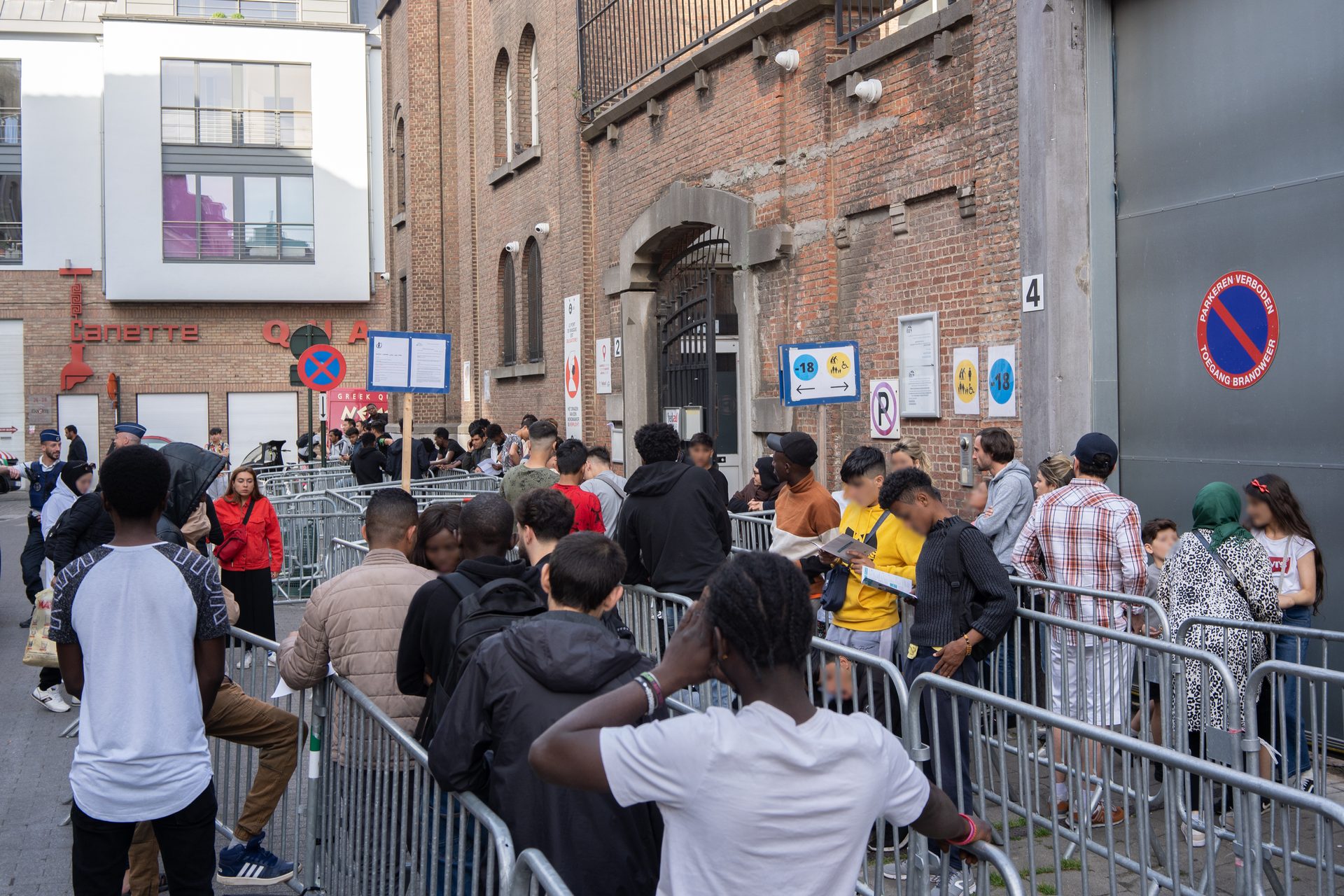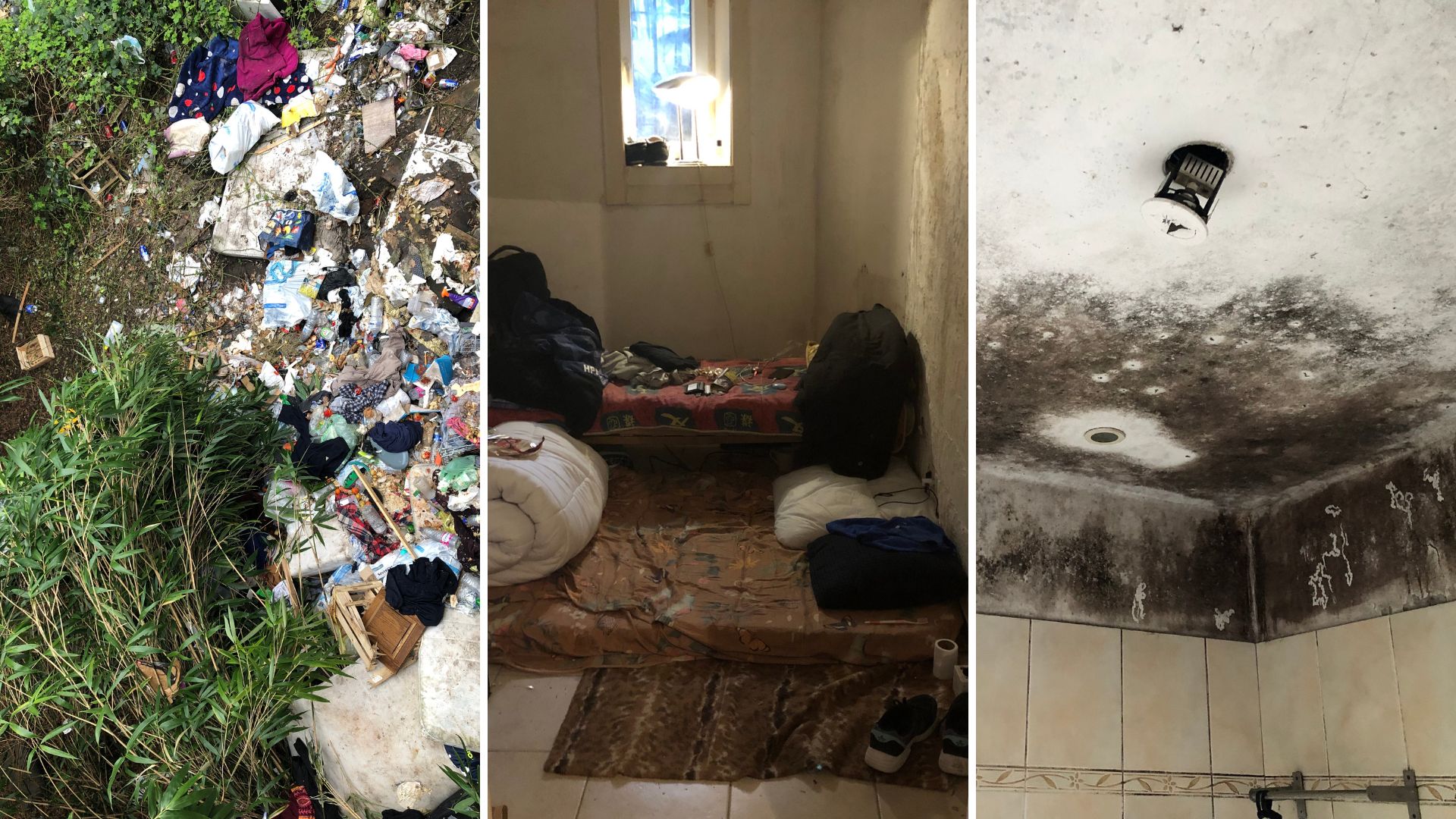Belgium's flawed asylum procedure has made Ramadan a difficult time for Muslim asylum seekers in Brussels, many of whom have been left on endless waiting lists and in deplorable living conditions.
Ramadan is a time of great celebration for followers of Islam, but this was not the case for a group of asylum seekers The Brussels Times visited in a Forest squat. The four-storey building became a squat about six weeks ago and is occupied by 25 men, most of whom are Palestinians in their 20s. The floors are dirty, the ceilings are blotched with mould and writing covers the walls.
The men have applied for asylum in Belgium, but given the unlawful decision of State Secretary for Asylum and Migration Nicole de Moor (CD&V) to suspend the reception of single males, these young men must fend for themselves while they wait for space to become available in a reception centre.
"This is not a life," one of them told The Brussels Times. "We can't change our clothes, we don't sleep well and we can't shower. None of our basic needs are being met."

Young asylum seekers prepare a meal in a Brussels squat. Credit: The Brussels Times
An already dismal atmosphere among the squatters has worsened during Ramadan as it is virtually impossible to observe religious traditions, such as fasting during daylight hours and spending quality time with loved ones.
"Normally, Ramadan is such a special time," another resident said. "I love to spend it with friends and family, but there isn't really any community spirit here. The situation is weighing on everyone; we are all busy with our own thoughts."
Finding a sense of community
Elsewhere in the city centre, another squat is somewhat less desolate. Almost every evening, volunteers and residents come together to eat iftar, a feast after sundown that breaks the fast during Ramadan. The building is in good condition and is kept clean, despite there only being two bathrooms shared between 40 residents.
One former resident who obtained shelter in a reception centre after nine months of waiting returns to the squat almost every day to help out. "There is a sense of community here," he told The Brussels Times. "People living in reception centres come here often, especially for iftar."
In spite of general hardship relating to the difficult living situation, the collaborative rapport among residents and towards volunteers (whom they warmly refer to as "fighters" and "angels") is evident. One resident is a chef and is known for serving an unrivalled iftar. Another is a professional barber and is frequented by asylum seekers from all over the city.

A makeshift barber shop in a Brussels squat. Credit: The Brussels Times
Mental health crisis
Nonetheless, the asylum waiting game is taking its toll on these squatters too. The average waiting time for a place in a reception centre is upwards of six months. Some residents have self-harmed in the hopes of speeding up the process, as reception agency Fedasil tends to prioritise individuals with injuries.
The agency says its top priority is creating more spaces for asylum seekers. "We want to welcome the 3,000 people on the waiting list as quickly as possible," the public body stated when contacted by The Brussels Times. "Asylum seekers stay in centres for a very long time, and as a result, there are no vacancies available. This is obviously something we very much regret."
Fedasil has teams on the ground to provide information to asylum seekers living in squats, but they say it is outside their remit to provide care to the thousands of men unable to enter the official system.

People waiting outside Fedasil reception centre 'Le Petit Chateau'. Credit: Belga / Noe Zimmer
Ramadan has exacerbated psychological difficulties among many. Mustafa (30) is from Palestine and came to Belgium nine months ago. He is still waiting for a place in a reception centre.
"Ramadan is very hard because I am not with my family," he told The Brussels Times. "My wife and two-year-old son are in Gaza, and I am too stressed to eat as I can't stop thinking about what's happening back home."
Mustafa has already spent nine months waiting for a place in a centre and is eager to start attending language classes, something he cannot do without the appropriate documentation. "I need to learn the language to feel at home here."
'Question of survival'
Magali Pratte, a crisis management advisor at Bruss'Help, stated that there is a growing mental health crisis among all groups seeking shelter in squats, particularly among Palestinian asylum seekers. "They receive horrible information from Gaza every day, and they are left to their own devices," she told The Brussels Times. "This is an enormous concern."
Belgium's reception crisis means that waiting times are extremely long both for asylum seekers whose procedures have begun and for single males who have not yet officially entered the system (a reality in violation of the rule of law).
"People are staying on the street for longer, so they are more damaged and are presenting more severe mental health problems," Pratte explained.
"During Ramadan, there is great solidarity within the Muslim community, with groups or mosques that donate food and so on," she says. "However, Ramadan or not, these people are in a bad way. It is a question of survival for them."

